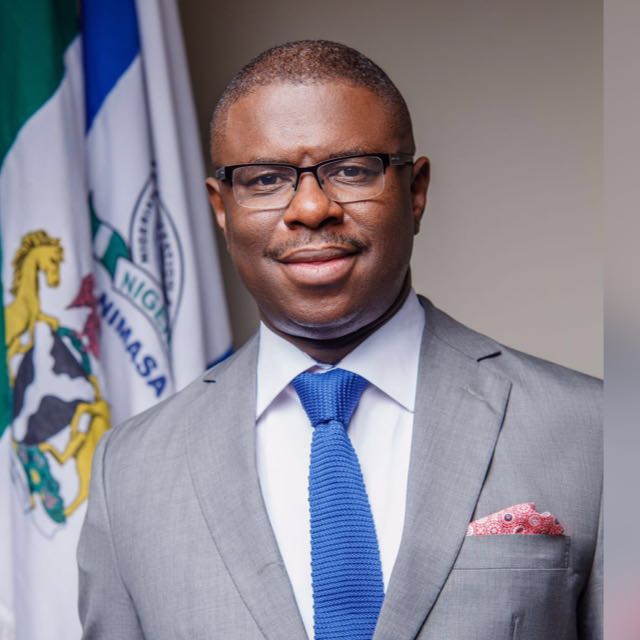Business
Nigeria Leading The War Against Piracy In Gulf Of Guinea – Dakuku

Nigeria is committed to leading the war on piracy and maritime crimes in the Gulf of Guinea region, the Director-General of the Nigerian Maritime Administration and Safety Agency (NIMASA), Dr. Dakuku Peterside, has declared.
Dakuku made the declaration in a keynote address he delivered at a symposium on Security in the Gulf of Guinea (GoG) at the headquarters of the International Maritime Organisation (IMO) in London.
The meeting was jointly organised by IMO, Baltic and International Maritime Council (BIMCO), International Marine Contractors Association (IMCA), International Transport Workers’ Federation (ITF), Oil Companies International Marine Forum (OCIMF), and the International Chamber of Shipping. It had in attendance MDs and CEO’s of top multinational shipping, oil and gas, and logistics firms.
Dakuku said the GoG countries were facing serious security challenges that had affected their economies severely and, therefore, needed global support and cooperation to tackle the problem.
He, however, said the location of the Gulf of Guinea held enormous advantages, as it holds a significant percentage of the world’s total oil and gas reserves as well as rich deposits of solid minerals, such as diamond, bitumen, copper, uranium, granite, quartz, lead, fluorite, and marble.
Already, Nigeria has committed to the hosting of a Global Maritime Security Conference (GMSC), which comes up in the country’s capital, Abuja, from October 7 to 9.
Dakuku stated that the conference will afford the international community a platform to develop actionable strategies to put an end to piracy and other security threats in the African geological and maritime region.
The NIMASA DG, who is also Chairman of the Association of African Maritime Administrations (AAMA), noted that the Gulf of Guinea occupied a strategic location in international seaborne trade. It is home to two regional economic blocs: Economic Community of Central African States (ECCAS) and Economic Community of West African States (ECOWAS), comprising 26 countries.
“It is, therefore, seen as a resource provider and critical contributor to national growth and prosperity of the nations lining its coasts and even those inward and with no shared boundaries, due to the access it grants to them,” he said.
He disclosed that the region’s waterways were a key navigational route for international commerce, connecting the Far East to countries in the North and South of the Atlantic. “It is the hub of extensive Trans-Atlantic trade linking Africa with Europe and the Americas,” he said.
Dakuku highlighted factors that made Nigeria strategic in the fight against maritime crimes in the GoG region to include being the country with the highest military contingent and might within the region, and a huge deposit of oil and gas, which makes it a place of interest in international energy dynamics. Others are the geo-strategic location of Nigeria, and the country’s big deltas, which are the largest in the world, with thousands of creeks.
The NIMASA DG said being the biggest economy and most populous country within the region, accounting for over 65 per cent of cargo generated in the area, Nigeria occupied a vantage position to lead efforts to solve the maritime security challenges in the region.
While acknowledging that maritime insecurity had economic, social and environmental implications for the region, Dakuku told the international community that Nigeria was leaving no stone unturned in the attempt to overcome the challenges.
And For More Nigerian News Visit GWG.NG


